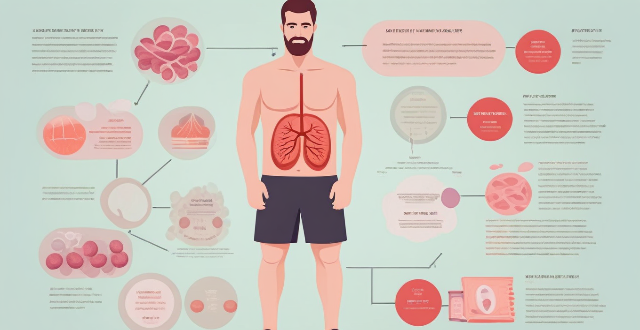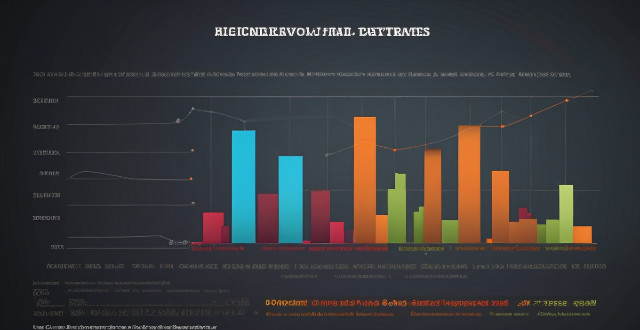Immune Factors

Can exercise boost the immune system ?
Exercise can indeed boost the immune system through various mechanisms, including enhanced circulation, reduced inflammation, weight management, stress reduction, improved sleep, increased self-esteem and mental health, microbiome diversity, temperature regulation, prevention of chronic diseases, and social interaction. Regular moderate exercise is generally considered beneficial for the immune system, but it's essential to consult with healthcare professionals to determine the appropriate amount and intensity of exercise for individual needs and circumstances.

Is there a specific duration or intensity of exercise needed to improve immune function ?
The relationship between exercise and immune function is complex, but research suggests that regular physical activity can enhance the immune system. However, both the duration and intensity of exercise play significant roles in achieving this beneficial effect. The American Heart Association recommends at least 150 minutes of moderate-intensity aerobic activity or 75 minutes of vigorous-intensity activity per week for adults. Engaging in prolonged periods of endurance exercise can temporarily suppress immune function due to increased stress on the body. Light activities like walking or yoga can still offer immune benefits by reducing stress and promoting overall health. Regular moderate to high-intensity exercises, such as jogging, cycling, or strength training, are generally considered optimal for enhancing immune function. Adequate rest and recovery are crucial for maintaining a healthy immune system. Combining different types of exercises (aerobic, strength training, flexibility work) can provide a well-rounded approach to enhancing immune function. Staying hydrated and consuming a balanced diet rich in nutrients supports both exercise performance and immune health. Other lifestyle habits, including sleep quality, stress management, and avoidance of harmful substances, also play a vital role in supporting immune function alongside exercise.

How does consistent physical activity affect the immune system in relation to chronic disease prevention ?
The article discusses the impact of consistent physical activity on the immune system and its role in preventing chronic diseases. It explains that regular exercise can increase the number and activity of immune cells, reduce inflammation, and improve overall health. The article also provides recommendations for exercise and emphasizes the importance of incorporating physical activity into one's lifestyle to prevent chronic diseases and improve well-being.

Is it true that certain superfoods can boost your immune system ?
Incorporating superfoods like citrus fruits, garlic, ginger, spinach, yogurt, nuts and seeds, blueberries, and turmeric into your diet can help support immune health by providing key nutrients such as vitamin C, vitamin D, zinc, protein, and antioxidants. These foods offer a range of benefits including boosting white blood cell production, reducing inflammation, supporting digestive health, and protecting against oxidative stress. However, it's important to maintain a balanced diet and lifestyle for overall immune support.

Can excessive training have negative effects on the immune system ?
Excessive training, or overtraining, can have negative effects on the immune system. Regular exercise enhances immune function by stimulating antibody and white blood cell production, reducing inflammation, and improving circulation. However, excessive training can cause chronic inflammation, oxidative stress, and hormonal imbalances that suppress immune function. Signs of overtraining syndrome include chronic fatigue, mood changes, and increased susceptibility to illness. To prevent overtraining and maintain immune health, individuals should follow a balanced training program, prioritize sleep, eat a nutrient-rich diet, and manage stress levels.

How does regular exercise contribute to boosting the immune system ?
Regular exercise has numerous health benefits, including boosting the immune system. It promotes increased blood circulation, reduces inflammation, helps in weight management, reduces stress, improves sleep quality, enhances gut health, increases antioxidant capacity, supports cardiovascular health, enhances mental health, and contributes to increased longevity. Incorporating regular physical activity into your lifestyle can support a strong and resilient immune system.

How do virus variants emerge ?
Virus variants emerge due to evolution, influenced byVirus variants emerge due to evolution, influenced bycombination, host immune influenced by factors like mutation, recombination, host immune response, and environmental factors. Mutations can make viruses more infectious or resistant to treatments, while recombination results in new viruses with characteristics from different parent viruses. The host's immune system drives the virus to mutate and develop new variants that can evade the immune response. Environmental factors like temperature and exposure to chemicals can also influence virus evolution. Understanding these mechanisms is crucial for preventing and controlling viral diseases.

How can I improve my diet to boost my immune system ?
Improving your diet is one of the best ways to boost your immune system. Here are some tips on how you can do that: ## Eat a Variety of Foods Eating a variety of foods ensures that you get all the essential nutrients your body needs. This includes fruits, vegetables, whole grains, lean proteins, and healthy fats. Aim for at least five servings of fruits and vegetables per day. ### Fruits and Vegetables - Apples - Bananas - Berries - Broccoli - Carrots - Spinach ### Whole Grains - Oats - Quinoa - Brown Rice ### Lean Proteins - Chicken breast - Fish (such as salmon or tuna) - Legumes (such as lentils or chickpeas) ### Healthy Fats - Avocados - Nuts (such as almonds or walnuts) - Seeds (such as chia or flaxseed) ## Stay Hydrated Drinking enough water is crucial for maintaining a healthy immune system. Aim for at least eight glasses of water per day, and more if you're active or it's hot outside. You can also stay hydrated by drinking herbal teas or eating water-rich foods like cucumbers, melons, and strawberries. ## Limit Processed Foods and Sugary Drinks Processed foods and sugary drinks can weaken your immune system by causing inflammation in your body. Try to limit these foods and drinks as much as possible, and opt for whole, nutrient-dense foods instead. ## Consider Taking Supplements If you're not getting enough vitamins and minerals from your diet, consider taking supplements. Some common supplements that may help boost your immune system include vitamin C, vitamin D, zinc, and probiotics. However, be sure to talk to your doctor before starting any new supplements.

How long after starting a new exercise routine can improvements in immunity be expected ?
Regular exercise has numerous health benefits, including improved cardiovascular health, weight management, and mental well-being. One of the lesser-known benefits is its positive impact on the immune system. Improvements in immunity can be observed within a few weeks of starting a regular exercise program, depending on individual factors such as current fitness level, intensity and duration of exercise sessions, and overall lifestyle habits. By incorporating regular physical activity into your daily routine, you can enhance your immune function and enjoy the numerous other health benefits associated with exercise.

What makes a virus variant more dangerous ?
A virus variant becomes more dangerous due to increased transmissibility, greater virulence, and resistance to interventions. Factors such as higher replication rate, enhanced infectivity, longer shedding period, higher severity of illness, immune evasion, reduced antiviral efficacy, vaccine escape, and diagnostic challenges contribute to these traits. Environmental and host factors like population immunity levels, global travel, and evolutionary pressure also play a role.

What are some essential factors to consider when buying secondhand items ?
When purchasing secondhand items, several essential factors should be considered to ensure the best value for money. These include the condition of the item, its price, the reputation of the seller, authenticity, age and lifespan, and safety and legality. By considering these factors, buyers can make informed decisions and avoid potential pitfalls.

Are there any particular sports or exercises that have been studied for their impact on immunity ?
This article discusses the impact of various sports and exercises on immunity, including aerobic exercise, resistance training, high-intensity interval training (HIIT), and yoga/meditation. It highlights the positive effects of these activities on immune function when performed regularly and appropriately, such as increased blood flow, enhanced immune cell production, improved cardiovascular health, and reduced inflammation. However, it also emphasizes the potential negative effects of excessive exercise or overtraining on immunity, urging individuals to find a balance between physical activity and rest.

What types of physical activities are most effective in enhancing immunity ?
Regular physical activity is crucial for enhancing immunity, with various types of exercises offering specific benefits. Aerobic exercises like jogging, cycling, and swimming improve cardiovascular health, respiratory function, and overall fitness, while also reducing stress and inflammation. Resistance training, including weightlifting and yoga, builds muscle mass, promotes hormone balance, and supports gut health. High-Intensity Interval Training (HIIT) boosts metabolism and cardiovascular health. Incorporating a mix of these activities into your routine can significantly enhance immunity.

Can vaccines be used to treat cancer or other non-infectious diseases ?
Vaccines are traditionally used to prevent infectious diseases by stimulating the immune system to recognize and attack specific pathogens. The possibility of using vaccines for the treatment of cancer or other non-infectious diseases is being explored, with a focus on modulating the immune response rather than stimulating it. Cancer vaccines, including preventive and therapeutic types, aim to stimulate the immune system to recognize and destroy tumor cells. For autoimmune diseases, researchers are exploring ways to use vaccines to dampen overactive immune responses or retrain the immune system. Vaccines are also being investigated for their potential in treating other chronic diseases such as Alzheimer's and heart disease. While promising, the application of vaccines in treating non-infectious diseases faces significant challenges, including identifying unique targets and balancing immune responses. Advancements in immunology and vaccine technology offer hope for new treatments that could benefit millions worldwide.

Does consistent exercise reduce the risk of catching colds and flu ?
Regular physical activity is known for its health benefits, including potential protection against colds and flu. Studies suggest that exercise can enhance immune system function by improving circulation and inducing a mild inflammatory response. However, the evidence is mixed, with some studies showing a clear link between regular exercise and reduced respiratory infections, while others do not. Potential mechanisms include improved immune surveillance, stress reduction, and increased circulation of immune cells. To benefit from these effects, it is recommended to engage in moderate to high levels of physical activity, such as 150 minutes of moderate aerobic activity or 75 minutes of vigorous activity per week, along with strength training exercises. Overtraining should be avoided, as it can weaken the immune system. Good hygiene practices are also essential for preventing colds and flu.

What are the factors that contribute to climate vulnerability ?
Climate vulnerability is influenced by various factors that can exacerbate the impacts of climate change and limit the ability of systems to adapt, including exposure to extreme weather events and sea level rise, ecosystem sensitivity, economic resources, infrastructure resilience, population density, dependency on climate-sensitive sectors, policy frameworks, access to information and technology, traditional knowledge, awareness and education, biodiversity loss, and land use changes. Addressing these factors through comprehensive strategies is essential for building resilience against the challenges posed by a changing climate.

What are the key factors to consider when planning an education budget ?
The text provides a comprehensive guide on the key factors to consider when planning an education budget. These factors include student population, curriculum and program offerings, faculty and staff salaries, infrastructure and maintenance costs, technology and digital learning tools, professional development opportunities, student support services, community partnerships and collaborations, and contingency funding. By considering these factors, one can create a budget that meets the educational needs of students while staying within financial constraints.

What are the key factors that contribute to social harmony ?
Social harmony is a state of peaceful coexistence and cooperation among individuals, groups, and communities within a society. Key factors contributing to social harmony include respect for diversity, communication and dialogue, education and awareness, equality and fairness, law and order, civic participation and volunteerism, and economic stability and prosperity. By promoting these factors, societies can create a more peaceful and cooperative environment where everyone can thrive.

What factors influence the performance of tech stocks ?
Tech stocks are influenced by macroeconomic conditions, industry-specific factors, and company-specific factors. Macroeconomic conditions include interest rates and economic growth. Industry-specific factors include regulatory changes and technological advancements. Company-specific factors include financial health and leadership and management.

What factors determine the amount of a student loan ?
The amount of a student loan is determined by several key factors, including eligibility criteria set by the lender, the cost of attendance at the chosen school, the student's financial need, and the type of loan (federal or private). Other influential factors include repayment options, school choice, and the availability of other financial aid. Students should consider all these elements and explore all possible funding options before taking out a loan.

What factors should I consider before upgrading my broadband connection ?
This topic summary discusses the key factors to consider before upgrading a broadband connection, including speed requirements, data caps, reliability, cost, availability, customer support, and additional features. It emphasizes the importance of evaluating current internet usage, future needs, monthly limits, overage charges, downtime frequency, service outages, contract terms, pricing plans, provider options, infrastructure, service quality, user reviews, bundling opportunities, and security measures. The conclusion suggests that by considering these factors, one can make an informed decision that meets current needs and anticipates future changes in internet usage patterns.

What factors affect the price of a second-hand iPhone ?
The price of a second-hand iPhone is influenced by various product-related and market-related factors. Product-related factors include the condition, age, storage capacity, and accessories of the phone. Market-related factors encompass supply and demand dynamics, brand loyalty, perception of new models, economic conditions, and currency exchange rates. Understanding these factors can help buyers and sellers negotiate better prices in the second-hand market.

What factors affect the accuracy of climate model predictions ?
The accuracy of climate model predictions is influenced by various factors including data quality and availability, model complexity and resolution, initial conditions and parameterizations, natural variability and external forcing, and the use of model intercomparison and ensemble methods. High-quality, up-to-date data and comprehensive models that account for multiple physical processes and high-resolution details are crucial. Initial conditions, sub-grid scale process parameterizations, internal climate variability, and external forcing factors add layers of complexity and uncertainty. To mitigate these uncertainties, scientists employ intercomparison projects and ensemble forecasting techniques to assess model reliability and potential future climate scenarios.

How do psychological factors influence sports performance and research ?
This document discusses the influence of psychological factors on sports performance, emphasizing the importance of motivation, confidence, concentration, resilience, and team dynamics. It highlights how these elements can enhance or hinder athletic performance and underscores the significance of research in understanding and applying psychological principles to optimize athlete mental states. The text concludes by noting the potential for ongoing research to refine our comprehension and application of psychology in sports, aiming to help athletes achieve their full potential mentally and physically.

What psychological factors contribute to the denial of environmental problems ?
The article discusses the psychological factors contributing to the denial of environmental problems. It mentions cognitive bias, emotional factors, and social influence as the main contributors to this issue. Cognitive bias includes confirmation bias and availability heuristic, which lead individuals to process information in a way that confirms their existing beliefs and values. Emotional factors such as fear, anger, and sadness can arise when confronted with environmental issues and lead to avoidance or denial. Social influence, including groupthink and social norms, can also contribute to the denial of environmental problems. Understanding these factors is crucial for promoting sustainable behavior and addressing environmental issues effectively.

How do cultural factors influence women's access to education ?
The text discusses cultural factors that influence women's access to education, including gender roles, perceptions of capability, social norms, economic priorities, religious teachings, and ethnic customs. These factors can either facilitate or hinder educational opportunities for women, shaping their roles in society and the economy. Addressing these barriers requires a multifaceted approach that includes challenging harmful cultural norms, promoting gender equality, and advocating for policies that support female education.

What are the key factors that contribute to high-level sports performance ?
High-level sports performance is determined by a combination of physical prowess, mental strength, tactical acumen, and favorable environmental conditions. Physical factors include strength and conditioning, flexibility and mobility, nutrition and hydration, and rest and recovery. Psychological factors encompass mindset and motivation, confidence and self-belief, mental toughness, and concentration and focus. Tactical factors involve technical skill, game intelligence, adaptability, and teamwork and communication. Environmental factors include training facilities, coaching staff, and support personnel. By addressing each of these factors through dedicated training and support systems, athletes can reach their full potential and achieve excellence in their chosen sport.

What are the key factors driving the growth of the Chinese economy ?
The growth of the Chinese economy has been driven by several key factors, including government policies and reforms, demographic dividend, globalization and export-led growth, domestic demand and consumption, and environmental sustainability and green growth. These factors have collectively contributed to rapid economic development in China over the past few decades. However, ongoing challenges such as demographic changes, environmental concerns, and global economic uncertainties require continued adaptation and innovation to sustain future growth.

What factors should be considered when planning the location of charging stations ?
When planning the location of charging stations, several factors must be considered to ensure their effectiveness and accessibility. These factors include demand analysis, geographic considerations, infrastructure availability, economic factors, environmental impact, user experience, and technology advancements. By considering these factors, planners can ensure that charging stations are strategically located to meet the needs of electric vehicle owners while also considering economic, environmental, and societal impacts.